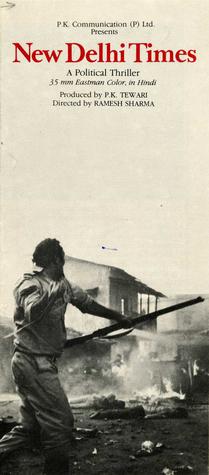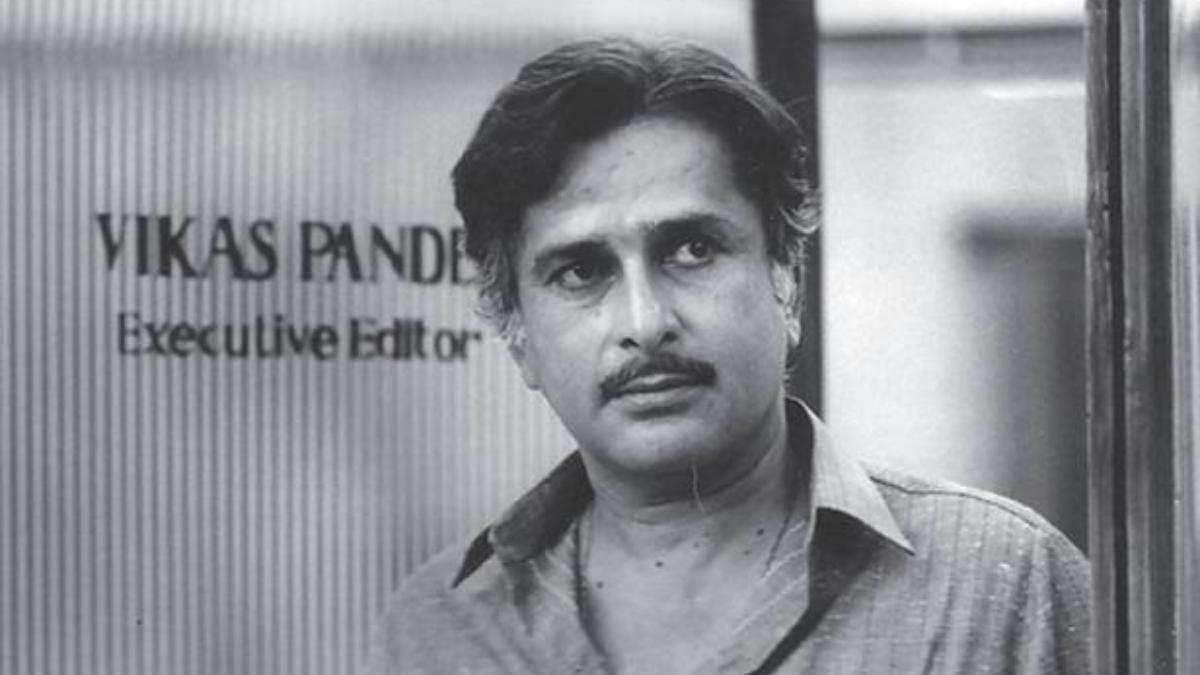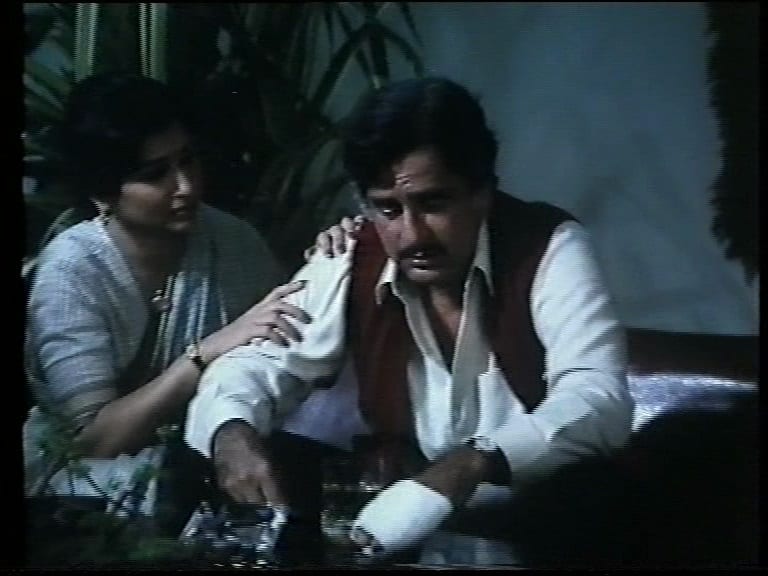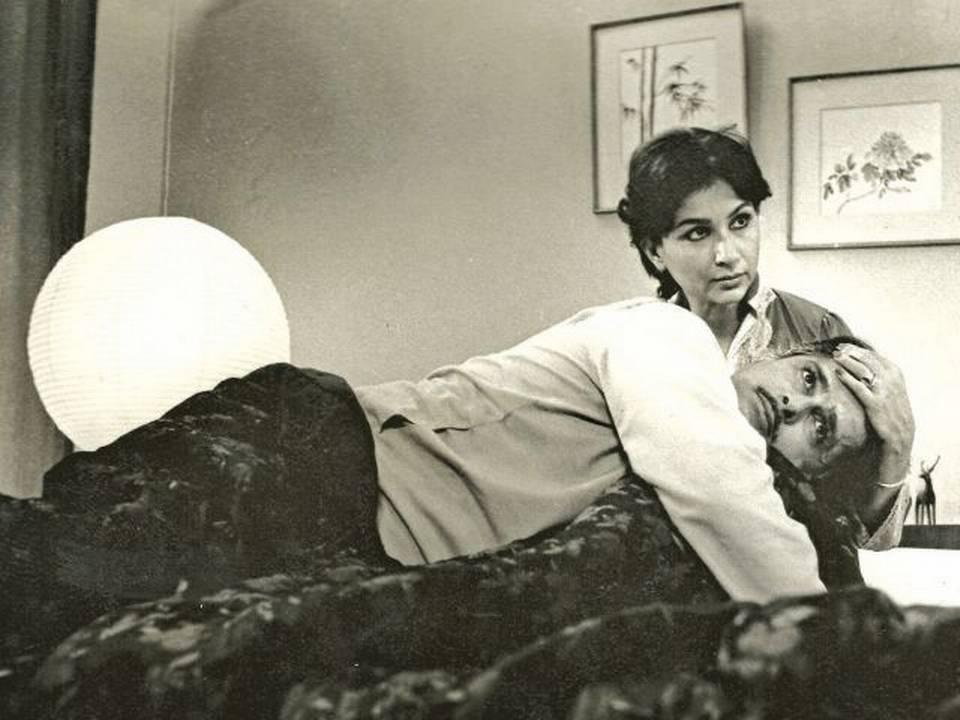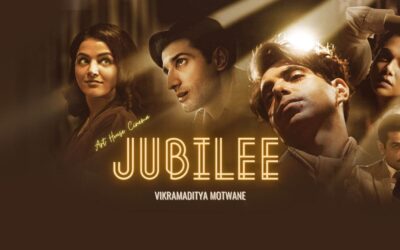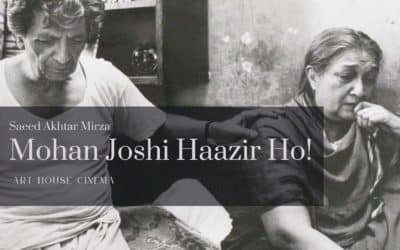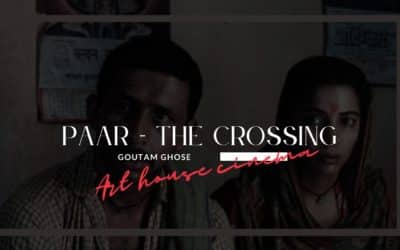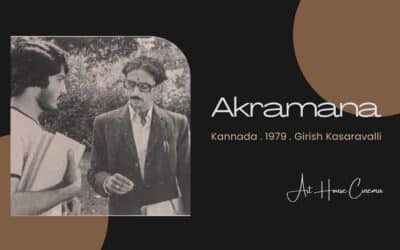New Delhi Times (1986) is a Hindi film directed by Ramesh Sharma and stars Shashi Kapoor, Sharmila Tagore, Om Puri, and Kulbhushan Kharbanda in prominent roles. The film is considered a political thriller on a Newspaper editor who is set out to expose corruption in the system.
New Delhi Times had a controversial run in the theatres owing to its political plot but was generally praised by critics. It went on to win three National Awards including that of Best Actor (Shashi Kapoor). It is considered one of the finest films on journalism and corruption in India, in the same league as Kundan Shah’s Jaane Bhi Do Yaaron (1983).
Cast
- Shashi Kapoor – Vikas Pande
- Sharmila Tagore – Nisha Pande
- Om Puri – Ajay Singh
- Kulbhushan Kharbanda – Jugal Kishore (JK)
- A.K. Hangal – Vikas’s father
- M.K. Raina – Iqbal
- Manohar Singh – Jagannath Poddar
- Ram Gopal Bajaj – Minister
Crew
- Direction – Ramesh Sharma
- Story – Gulzar
- Music – Louis Banks
- Cinematography – Subrata Mishra
- Editing – Renu Saluja
- Production – P.K. Tiwari
Story
New Delhi Times starts with the assassination of Bhaleram, the local MLA, in Gazipur, Uttar Pradesh. The guard of the circuit house, where the incident took place, also goes missing. All this happens in the middle of an ongoing power tussle between Chief Minister Chaturvedi and an ambitious MLA Ajay Singh.
Vikas is an upright executive editor of the New Delhi Times newspaper based in Delhi. He is investigating the frequent riots that have been happening in Gazipur and stumbled upon clues that seem to link Ajay Singh with Bhaleram’s murder.
Ajay Singh is a tainted politician accused of criminal activities like drug trafficking, extortion, and kidnapping. Iqbal is his trusted enforcer and is linked with the Gazipur riots. He is arrested in connection with the murder of Bhaleram and is produced in the court. Iqbal claims that he is innocent and has been framed for a crime for which Ajay Singh is responsible. This becomes the front page news of the New Delhi Times.
Vikas has a showdown with Ajay Singh. An agitated Singh tells him that he was planning to overthrow the Chief Minister and had even acquired 13 MLAs for support. Bhaleram was one of those 13 MLAs and Singh had no motive to kill him.
The plot thickens with conspiracies and counter-conspiracies and Vikas finds himself in the middle of a dirty game of politics mirroring the rot in the system. Unfazed by the threats intending to make him suppress his story, he pursues the case with the determination of a hound who just does not know when to give up.
What comes out is not what he had expected…
Commentary
New Delhi Times is a hard-hitting film with an incisive take on the subject that is as relevant in 2020 as it was in 1985. Not only is the political-mafia nexus still strong but it has only become stronger in the decades gone by, making the democracy a sham at best and a downright muck at its worst. The film looks at the rot in the socio-political fabric from the perspective of a journalist who is hell-bent to do what is right, and willing to pay any price for that.
The film attempts to explore the paradox inherent in journalism, the fundamental duality between sensitivity and objectivity. While covering a story, every journalist goes through the dilemma of being bound by the responsibility of neutrality while struggling not to feel empathy for those who are suffering from the events. This dogma is set in the backdrop of a communal riot where it becomes a choice whether to feel sad looking at a bloodied body or rejoice that you got a story. The narrative is remarkable for its simplicity, aided by the superior cast which delivers very strong performances.
Shashi Kapoor, in a National Award-winning performance, plays the principled editor who is not afraid to cross swords with the high and mighty. The external and internal pressures faced by him while exposing a criminal-politician nexus are depicted very authentically and his demeanor adds tremendous value to the role. Not many people remember him for his work in Indian Art Cinema, steller performances that have been forgotten. New Delhi Times is another reminder of what a class act he was.
Sharmila Tagore in her role as a Delhi High Court lawyer who fights for the rights of the people is graceful. The relationship of Nisha and Vikas has been handled beautifully in the film. Om Puri excels as the brash and unscrupulous Ajay Singh. The ensemble supporting cast does justice to their roles.
New Delhi Times is a fearless ode to Indian Journalism, all its virtues and fallacies included. In one of the scenes, Vikas asks Anwar, a fellow journalist, if a reporter does not feel empathy while covering a riot. To which Anwar replies – Yes, but only for the first time. This straightforwardness, probably the work of Gulzar, is what makes this film unique. It holds back no punches, mumbles no apologies, and yet does not raise the decibel.
In an era of Digital onslaught, the film is also a delightful insight into Newspaper publishing in the 1980s, of journalists setting newspapers on bromide paper, struggling to “hold the front page” because of breaking news and dictating articles on a typewriter on a trunk call. It is also a gentle reminder that while the technology has changed by leaps and bounds, the dilemma remains the same.
Awards and Recognition
- National Award for the Best Actor (1986) – Shashi Kapoor
- National Award for the Best Cinematography (1986) – Subrata Mitra
- Indira Gandhi National Award for the Best Debut Film of a Director (1986) – Ramesh Sharma
- Bengal Film Journalist’s Association Award (1988)
Trivia
- The film struggled to get a theatrical release owing to its political plot. It was not telecast on the national broadcaster and was even sued by a lawyer for a dialogue that implied that all lawyers lie.
- Shashi Kapoor agreed to work in the film at the signing amount of Rs 101. The shoot was delayed because of the death of his wife Jennifer Kendell and resumed months later.
Reference
- Wikipedia – New Delhi Times (film)
- IMDB – New Delhi Times (1986)
- The Print – Shashi Kapoor’s New Delhi Times gives a true picture of journalism, warts and all
- The Quint – Millennials Review Classics: Shashi Kapoor’s ‘New Delhi Times’
- YouTube – Cinemaazi TV – Editor’s Choice | Ramesh Sharma | New Delhi Times


